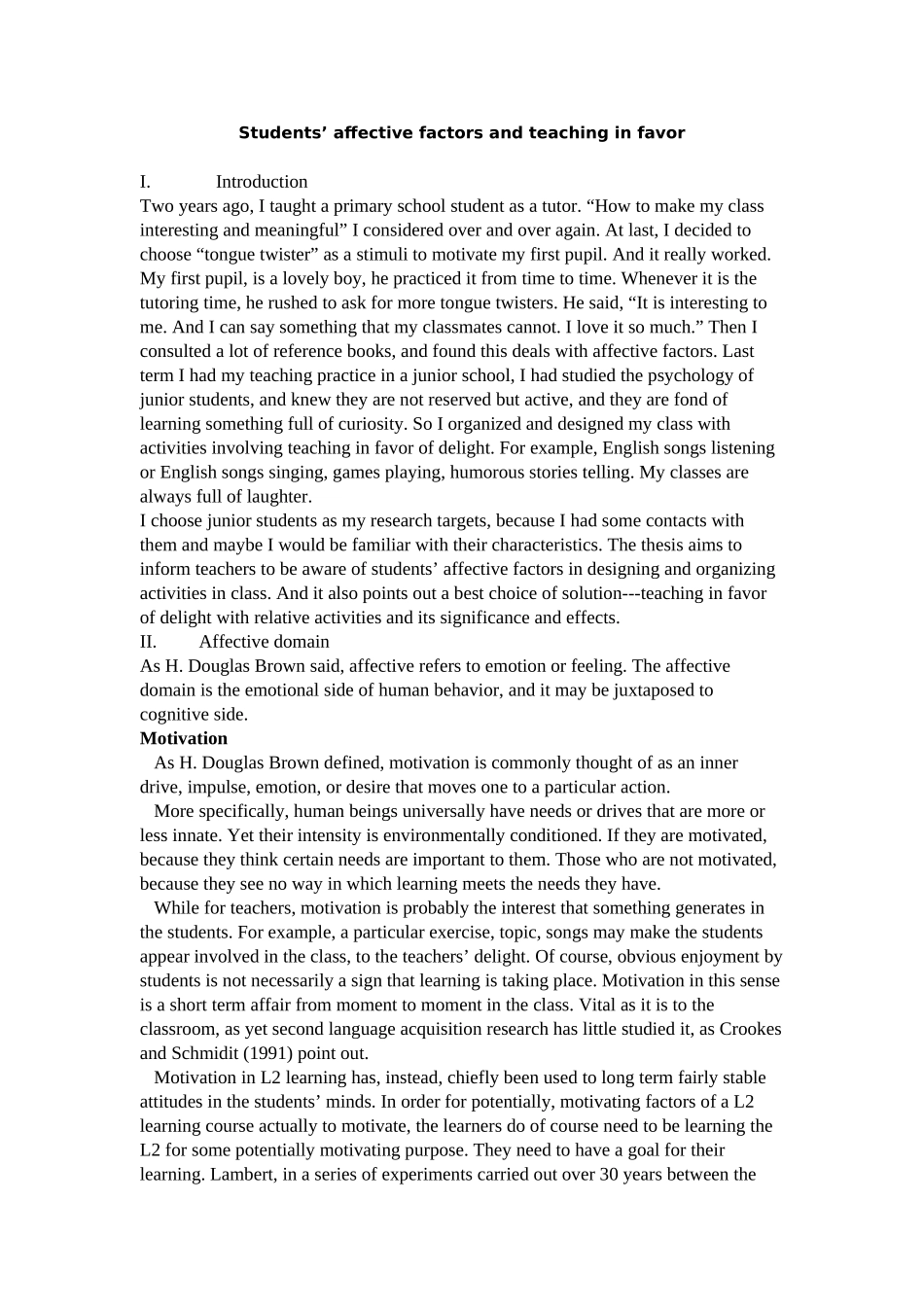Students’ affective factors and teaching in favorI. IntroductionTwo years ago, I taught a primary school student as a tutor. “How to make my class interesting and meaningful” I considered over and over again. At last, I decided to choose “tongue twister” as a stimuli to motivate my first pupil. And it really worked. My first pupil, is a lovely boy, he practiced it from time to time. Whenever it is the tutoring time, he rushed to ask for more tongue twisters. He said, “It is interesting to me. And I can say something that my classmates cannot. I love it so much.” Then I consulted a lot of reference books, and found this deals with affective factors. Last term I had my teaching practice in a junior school, I had studied the psychology of junior students, and knew they are not reserved but active, and they are fond of learning something full of curiosity. So I organized and designed my class with activities involving teaching in favor of delight. For example, English songs listening or English songs singing, games playing, humorous stories telling. My classes are always full of laughter.I choose junior students as my research targets, because I had some contacts with them and maybe I would be familiar with their characteristics. The thesis aims to inform teachers to be aware of students’ affective factors in designing and organizing activities in class. And it also points out a best choice of solution---teaching in favor of delight with relative activities and its significance and effects.II. Affective domainAs H. Douglas Brown said, affective refers to emotion or feeling. The affective domain is the emotional side of human behavior, and it may be juxtaposed to cognitive side.Mot...


